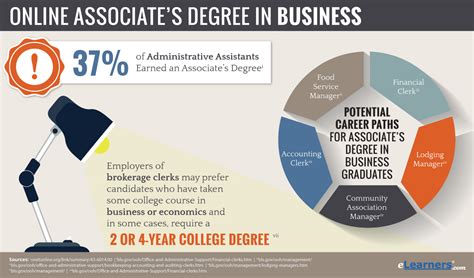Berikut adalah posting blog tentang cara mendapatkan gelar associate dalam bidang keuangan:
The Complete Guide to an Associate’s Degree in Finance
Are you looking to start a career in finance but don't know where to begin? An associate's degree in finance could be the perfect stepping stone for your financial future. This comprehensive guide will walk you through everything you need to know about pursuing this degree, from understanding the curriculum to exploring career paths and salary expectations.
What is an Associate's Degree in Finance?
An Associate's Degree in Finance is a two-year program designed to provide students with a foundational understanding of financial principles and practices. This degree focuses on developing essential skills in areas such as accounting, economics, and financial management. It's a great option for those seeking a quicker path to entry-level positions in the finance industry or as a stepping stone to a bachelor's degree.
Key Areas of Study:
- Accounting Principles: Learning the fundamentals of financial record-keeping, including bookkeeping, debits, credits, and financial statement preparation.
- Financial Management: Understanding concepts like budgeting, financial planning, investment analysis, and risk management.
- Economics: Gaining knowledge of macroeconomic and microeconomic principles that impact financial markets.
- Statistics and Mathematics: Developing quantitative skills crucial for analyzing financial data and making informed decisions.
- Financial Technology (FinTech): Many programs are now incorporating courses on emerging technologies impacting the finance industry.
Benefits of an Associate's Degree in Finance
- Faster Entry into the Workforce: Compared to a bachelor's degree, an associate's degree offers a quicker route to employment.
- Cost-Effective: Associate's degrees typically require less time and tuition than bachelor's degrees, making them more affordable.
- Specialized Skills: The focused curriculum provides practical skills immediately applicable to entry-level finance roles.
- Career Advancement: An associate's degree can serve as a solid foundation for further education or career advancement.
- Strong Foundation: The knowledge gained provides a strong base for those considering a future in finance.
Career Paths After an Associate's Degree in Finance
While a bachelor's degree often opens more doors, an associate's degree can still lead to several rewarding careers. Here are some potential career paths:
- Bookkeeper: Maintaining financial records for businesses.
- Accounting Clerk: Assisting accountants with various tasks.
- Financial Analyst Assistant: Supporting financial analysts in their work.
- Loan Officer Assistant: Supporting loan officers in processing loan applications.
- Budget Analyst Assistant: Assisting in the development and management of budgets.
- Insurance Claims Adjuster: Investigating and settling insurance claims.
Salary Expectations
Salary expectations for entry-level finance positions with an associate's degree vary widely depending on location, experience, and specific role. While a bachelor's degree typically commands higher salaries, you can still earn a respectable living with an associate's degree, providing a strong foundation to progress towards higher-paying roles.
Finding the Right Program
Choosing the right associate's degree program is crucial. Consider factors like:
- Accreditation: Ensure the program is accredited by a reputable organization.
- Curriculum: Review the specific courses offered and ensure they align with your career goals.
- Faculty: Research the faculty's experience and expertise.
- Career Services: Look for programs that offer robust career services and placement assistance.
- Location and Flexibility: Consider whether you prefer online, on-campus, or hybrid learning options.
Conclusion
An associate's degree in finance can be an excellent starting point for a successful career in the financial industry. By understanding the curriculum, exploring career options, and choosing the right program, you can confidently embark on this rewarding path. Remember to research potential employers and network with professionals in the field to increase your chances of securing a strong position. Good luck!
